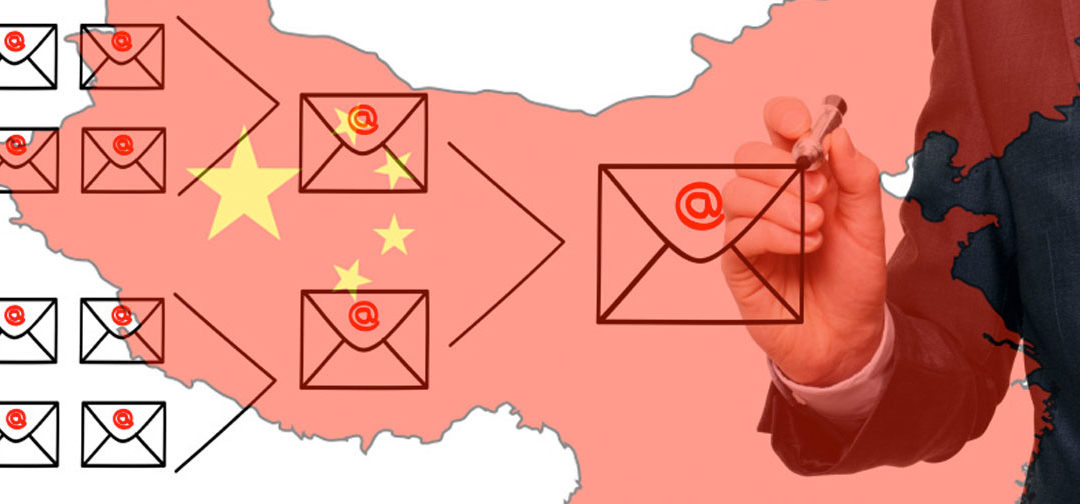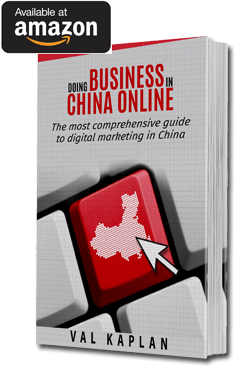China email marketing is still one of the most effective direct marketing channels and it is widely used by marketers. The main appeal of email marketing is in its relative low cost combined with the ability to get your message directly to the recipient’s inbox, or a smartphone as it is increasingly becoming the case. Excellent ROI and enormous reach of email campaigns, provided, of course, that your email manages to bypass spam filters, are what make this channel an important component in the overall marketing strategy. Connecting with over 800 million email users in China at very low cost is, undoubtedly, a very attractive prospect.
The biggest problem with email marketing in general and China email marketing in particular is, of course, spam. Most countries around the world have introduced laws and regulations designed to limit amount of spam by specifying requirements to emails and imposing various degrees of penalties for violators. For example, federal anti-spam legislation CAN-SPAM Act of 2003 requires proper opt-out link to be included in a promotional mail, valid “from” email and a clear “subject” line.
The Chinese equivalent anti-spam legislation is called “Regulations On Internet Email Services” and is, by far, more complex and severe compared to its US equivalent. This law applies to emails sent to all Chinese residents and, at least in theory, covers users who happened to receive emails while in Chinese territory.
Your China email marketing checklist
Here is the brief summary of the requirements to a promotional email according to the law:
Verifiable Permission.
Chinese law requires recipient’s explicit permission to be given in order to include an email to a mass mailing list. Unsubscribe or opt-out option is not enough. The permission has to be verifiable and stored indefinitely in case of an audit;
Word “Ad” in subject line.
Either English “Ad” for English language emails or the equivalent Chinese word for “advertisement” is required in the subject line;
Content requirements.
Chinese promotional email definition is much broader than the one of CAN-SPAM Act and includes all kinds of messages containing any type of advertisement;
Downloadable content requirements.
If a message contains any links to external content, such as a piece of software or an app, the law requires a written guarantee that they do not contain any spyware or anything that can facilitate hackers. It is not clear whether this applies to downloadable graphics such as images or thumbnail icons;
Content restrictions.
Article 57 of the Regulations on Telecommunications stipulates the content of the allowable email which is purposefully left quite vague. There are thousands of words and topics that are currently banned and the list is very dynamic. Politically sensitive topics are the obvious examples as well as everything that is deemed obscene or pornographic. It’s a good idea to refer to the list of blacklisted keywords before starting your China email marketing campaign.
According to the law, the penalty goes from 10,000 yuan and up to 30,000 yuan per email in case the violation involves “unlawful proceeds”. The law doesn’t specify what such “unlawful proceeds” might mean.
So, considering such tight restrictions and severe penalties, why would anyone even entertain the idea of mass email marketing campaign in China? Well, here is the upside: so far, there have been no known or, at least, reasonably high profile cases of the actual application of the law or prosecuting any offenders. In fact, the law does little to help with the major spam problem that exists today in Chinese internet space.
Obviously, one has to be aware of the legal aspect of email marketing in China and continue following common practices such as including unsubscribe links, acquiring and growing email mailing lists by legitimate means and, of course, staying away from sensitive topics. Violating such rules can have your domain blacklisted risking completely blocking your company’s access to users in China. One should keep in mind that the famous China’s Great Firewall is notoriously effective and you don’t want to find yourself on the other side of it one day.




